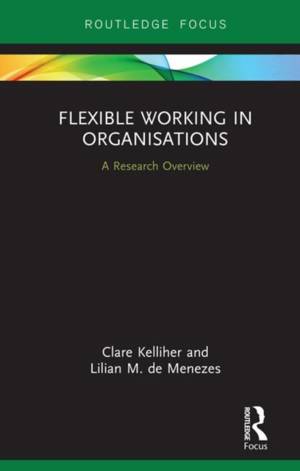
- Afhalen na 1 uur in een winkel met voorraad
- In januari gratis thuislevering in België
- Ruim aanbod met 7 miljoen producten
- Afhalen na 1 uur in een winkel met voorraad
- In januari gratis thuislevering in België
- Ruim aanbod met 7 miljoen producten
Omschrijving
There is growing interest in flexible working, not only as a means to manage labour more efficiently and for greater agility, but also as a response to increasing concerns over well-being, work-life balance, and participation in the labour force of those with significant non-work commitments (e.g. parents, carers, older workers). As a result, a comprehensive stream of literature on the benefits and challenges of flexible working has developed and led to a body of evidence on the implementation and outcomes of different forms of flexible working arrangements. Of interest to students, academics and policy-makers, this book provides an expert overview of the empirical evidence and offers critical commentary on the state of knowledge in the field of flexible working and new forms of work.
Specificaties
Betrokkenen
- Auteur(s):
- Uitgeverij:
Inhoud
- Aantal bladzijden:
- 72
- Taal:
- Engels
- Reeks:
Eigenschappen
- Productcode (EAN):
- 9780815356325
- Verschijningsdatum:
- 8/05/2019
- Uitvoering:
- Hardcover
- Formaat:
- Genaaid
- Afmetingen:
- 140 mm x 216 mm
- Gewicht:
- 240 g

Alleen bij Standaard Boekhandel
Beoordelingen
We publiceren alleen reviews die voldoen aan de voorwaarden voor reviews. Bekijk onze voorwaarden voor reviews.









